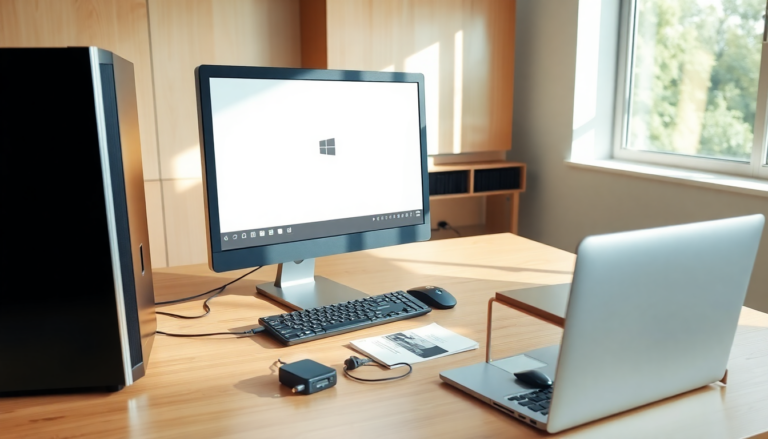Argomenti trattati
As technology continues to evolve, so too do our practices around operating systems and performance maintenance. For years, the mantra of seasoned Windows users has been to periodically reinstall the OS to keep it running smoothly. But as we look ahead to 2025, is this practice still necessary? Recent investigations into the performance of Windows installations suggest that the landscape has changed significantly, challenging our traditional beliefs about system upkeep.
Is Reinstalling Windows Still Worth It? A Performance Analysis
In an eye-opening examination, a tech enthusiast tested the performance of his customized Windows 11 setup, which boasted a Ryzen 9800X3D processor and 64GB of RAM. The results were quite revealing. The difference in performance between a system that had been running for over a year and a freshly installed OS was surprisingly minimal—only about a 3% variance in single-core tasks. In fact, in some cases, the long-standing setup actually outperformed the fresh installation, particularly in demanding applications like Adobe Premiere, which showed an 8% increase in speed on the older system. Who would have thought that your trusty old machine could still hold its own?
This deviation from the expected narrative raises some important questions. Historically, users have believed that a fresh OS would guarantee better performance, but the data seems to tell a different story. Gaming benchmarks further illustrated this point, revealing a slight advantage for the established system in demanding scenarios like running Cyberpunk 2077, where the ‘dirty’ machine outperformed the refreshed one by a narrow margin. Could it be time to rethink the need for frequent reinstalls?
What Do These Findings Mean for Everyday Users?
While these results may come as a surprise, they reflect a changing reality in the world of computing. As technology advances, so does our ability to maintain system performance without resorting to drastic measures like reinstalling the operating system. Users who are mindful of their system’s resources and steer clear of excessive bloatware can enjoy solid performance from a well-maintained setup. How many of us are guilty of letting unnecessary programs slow our systems down?
However, the investigation’s authors caution against generalizing these results. The tests conducted were not comprehensive scientific experiments; they were based on a personal setup from an experienced user. For those who frequently install numerous startup programs or accumulate unwanted software, the benefits of a fresh install may still hold true. But for the average user who practices good digital hygiene, the need for frequent reinstallation appears to be fading.
Looking Ahead: The Future of Windows Maintenance
As we progress further into the 2020s, our approach to maintaining operating systems will undoubtedly continue to evolve. The findings from recent tests suggest a significant shift in how users should think about system upkeep. Instead of relying on the once-standard practice of periodic reinstallation, users may discover that consistent maintenance and a focus on resource management can yield similar, if not better, performance outcomes. Isn’t it exciting to think that effective maintenance might save us time and effort?
In conclusion, while the age-old practice of reinstalling Windows may have served its purpose in the past, the evidence presented suggests it may no longer be a necessity for optimal performance in 2025. Users are encouraged to adopt a more nuanced understanding of system maintenance, focusing on regular updates, efficient software management, and a tailored approach to personal computing. So, are you ready to embrace a new era of Windows maintenance?

